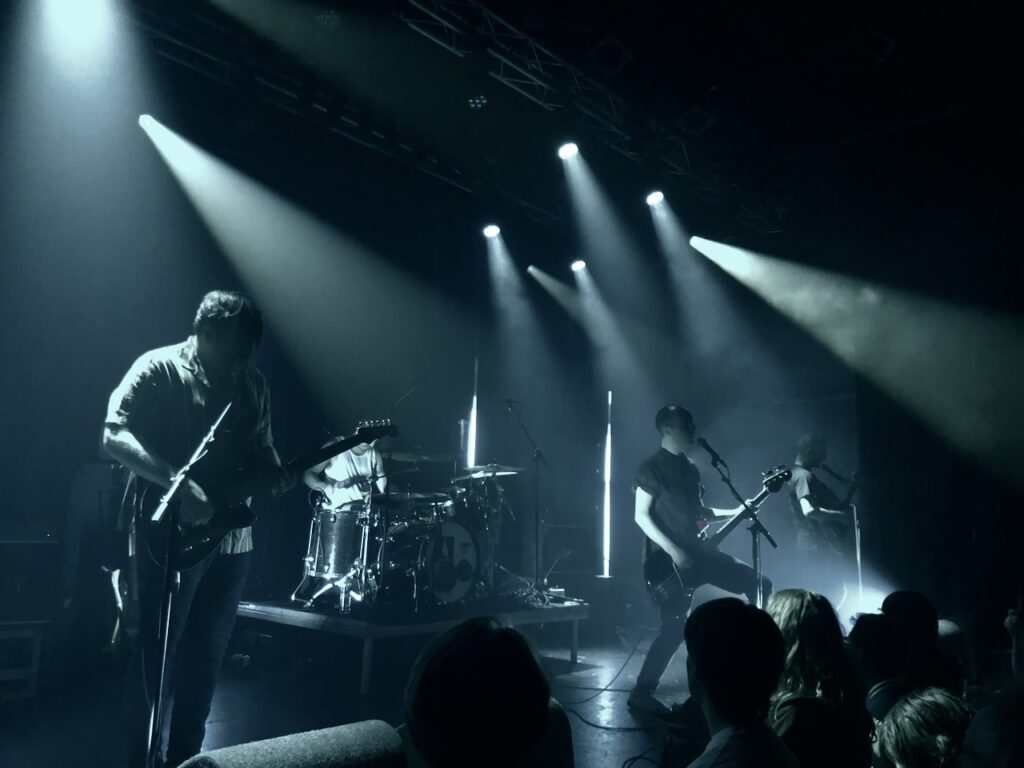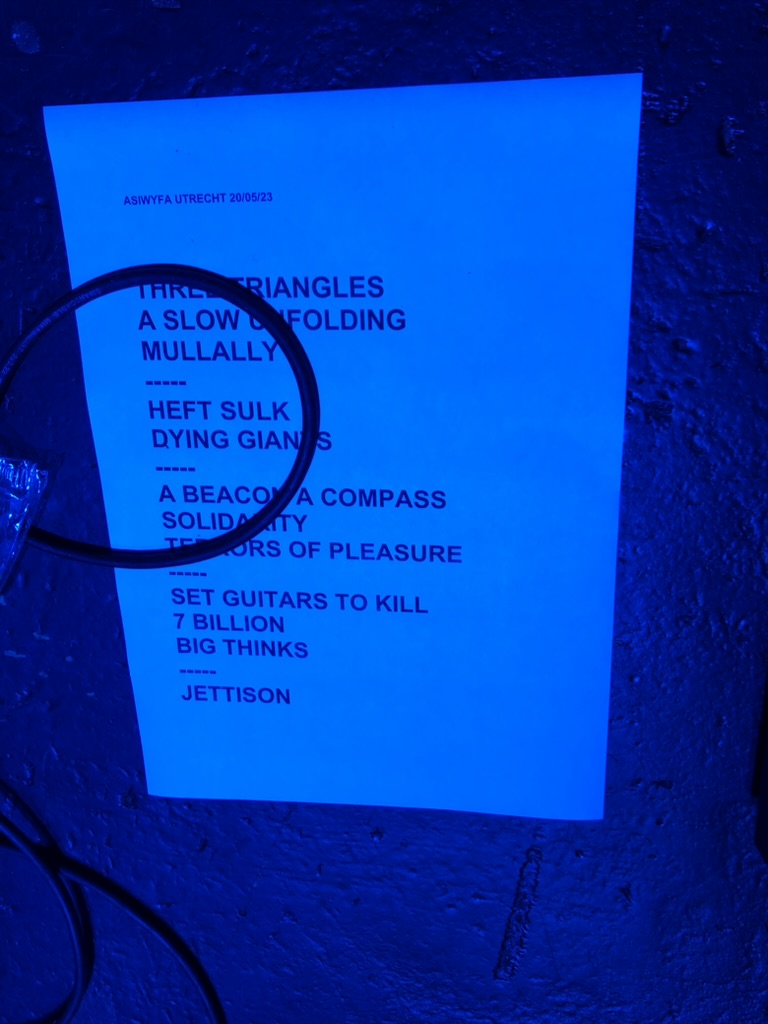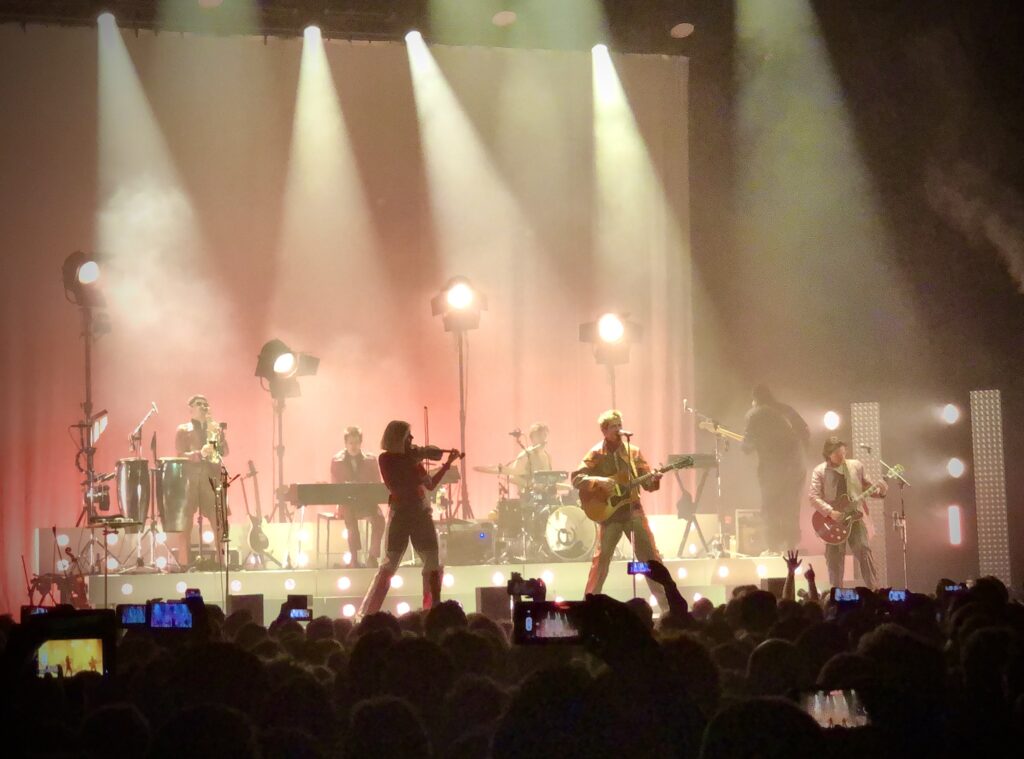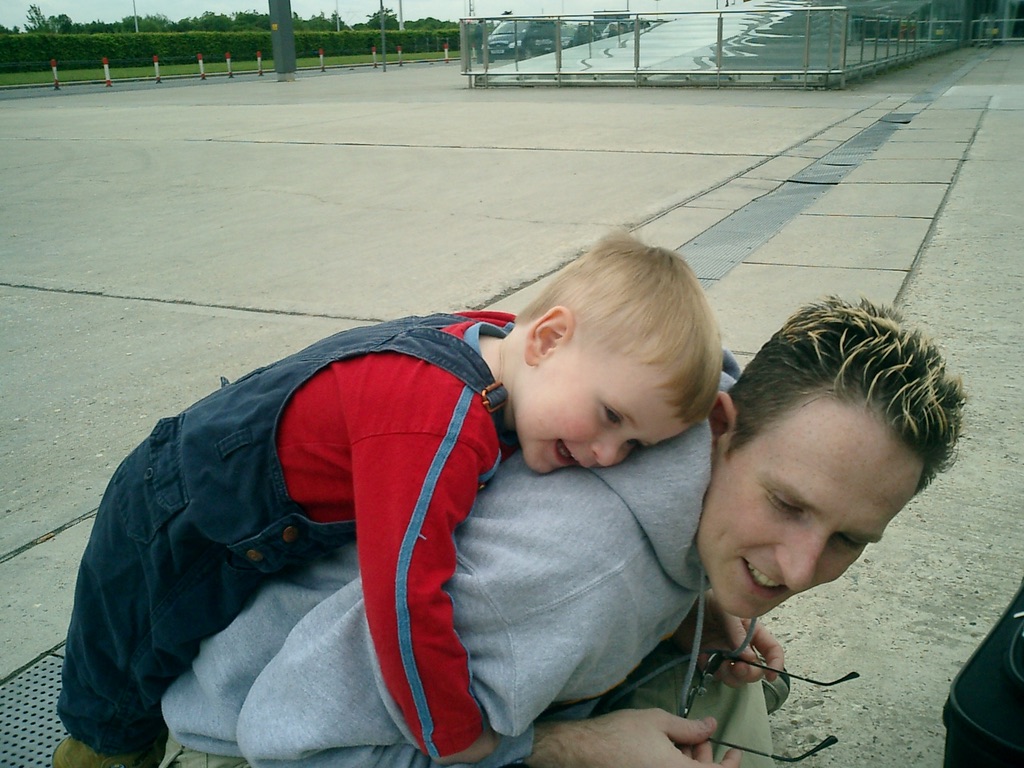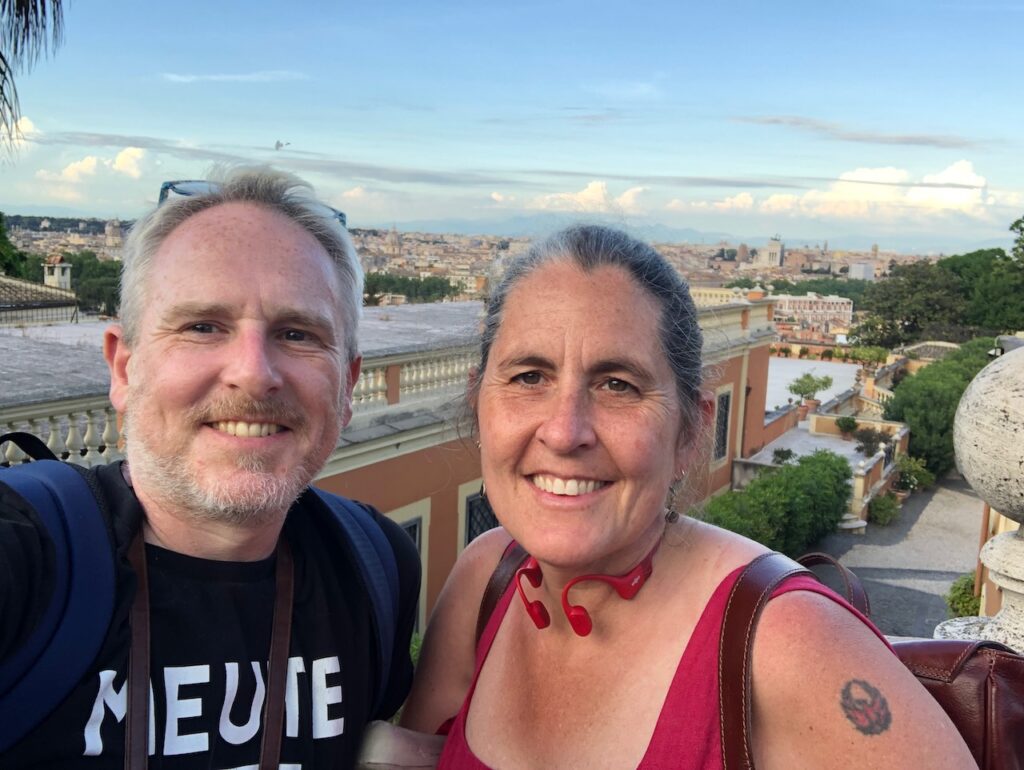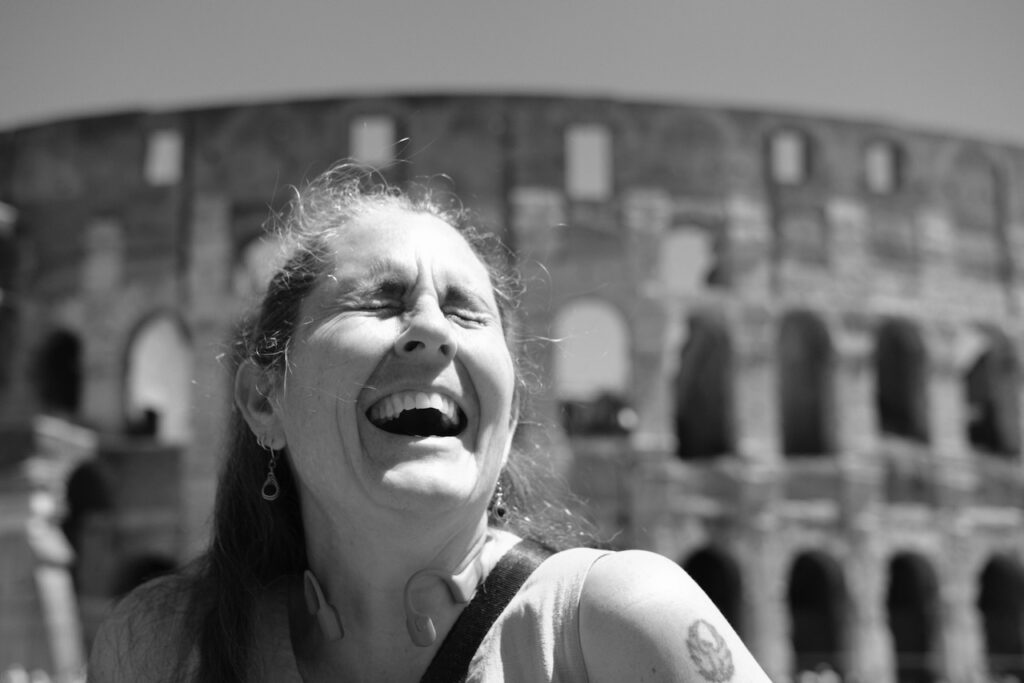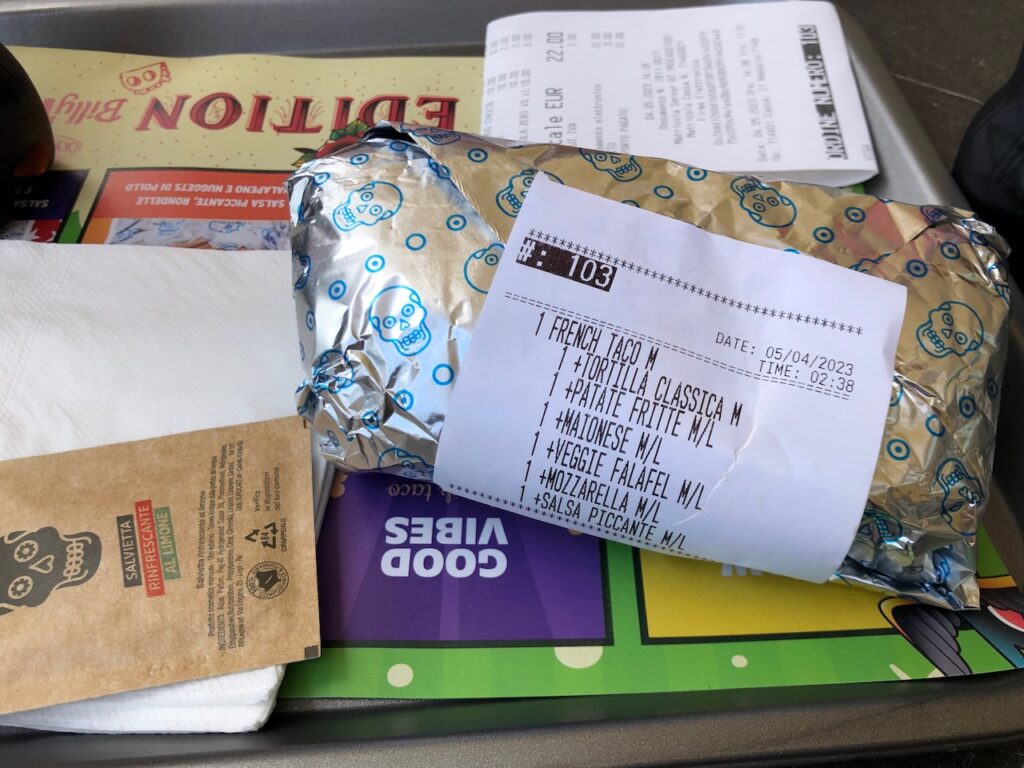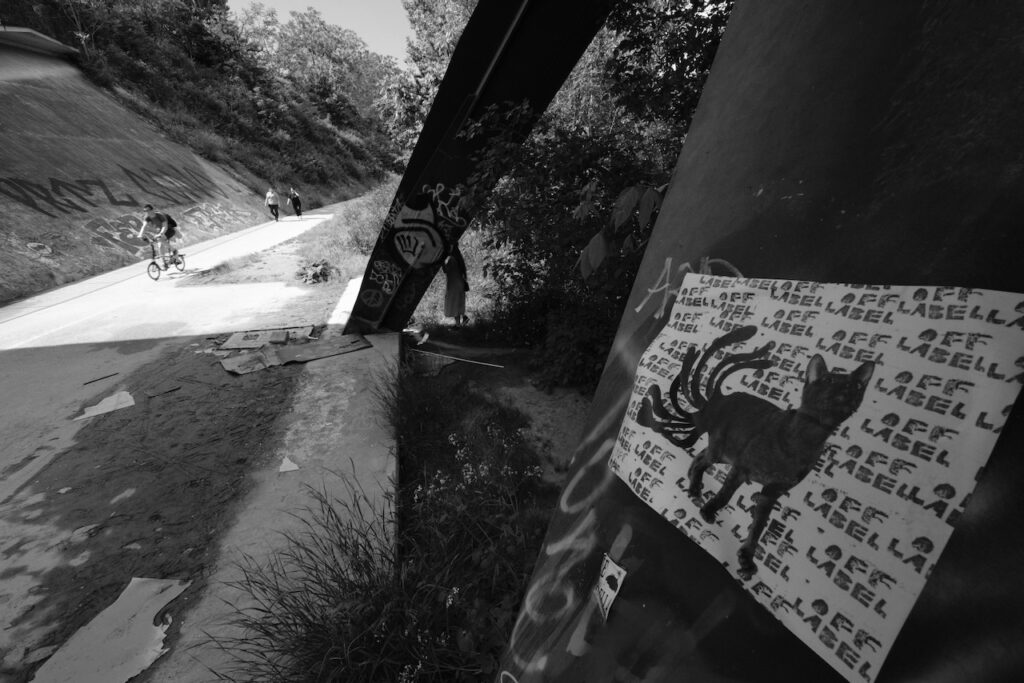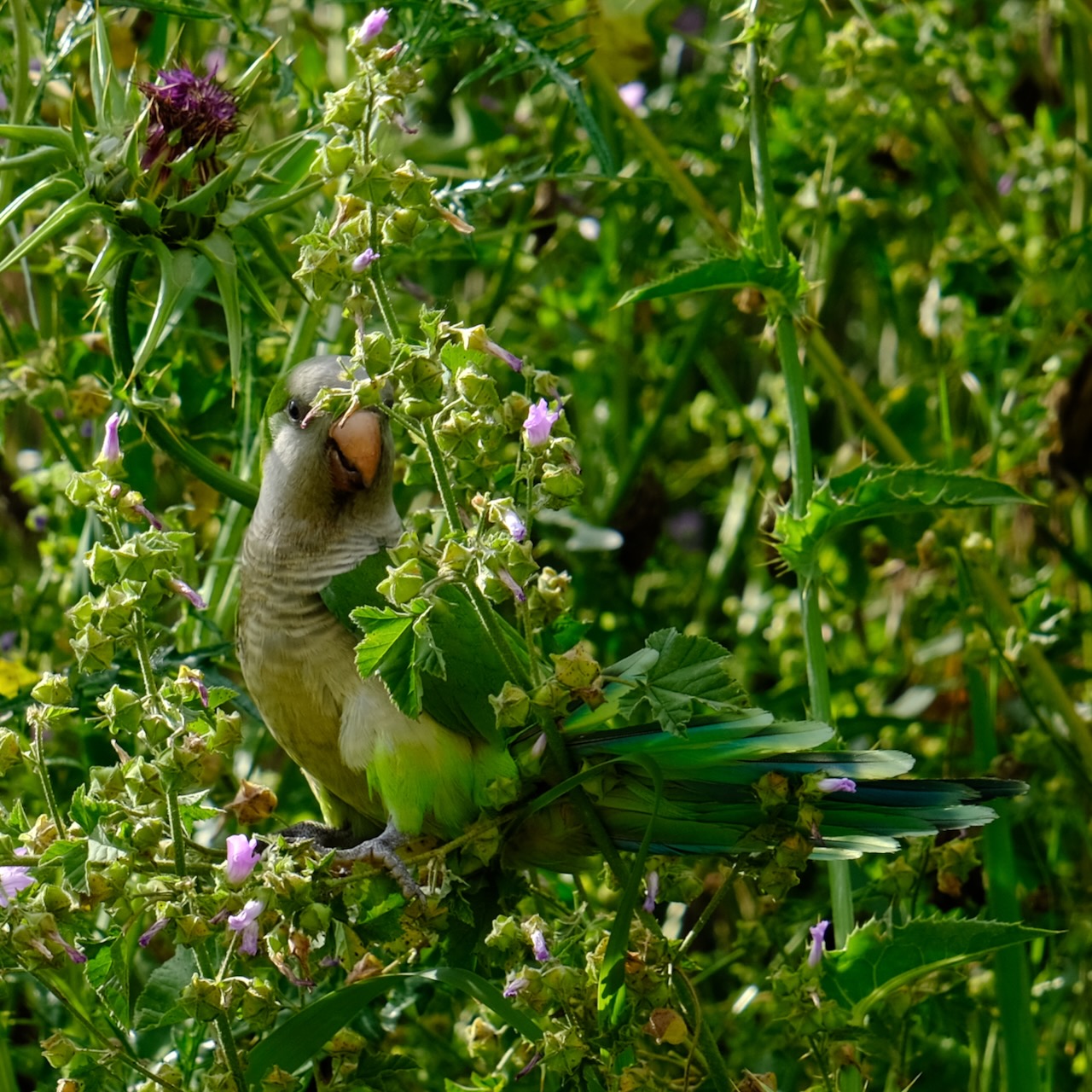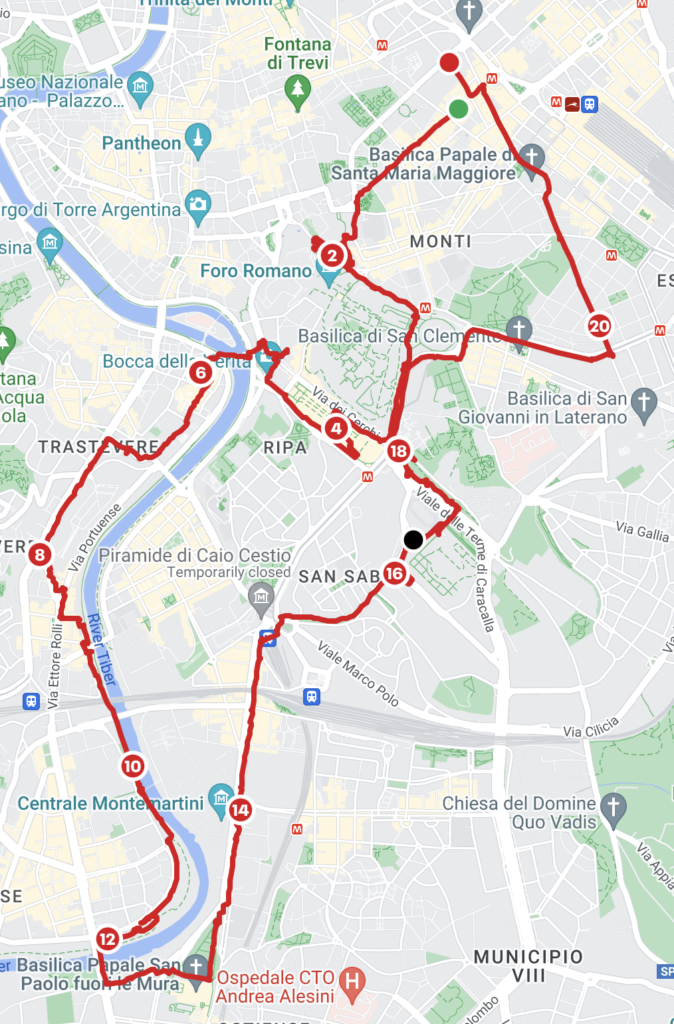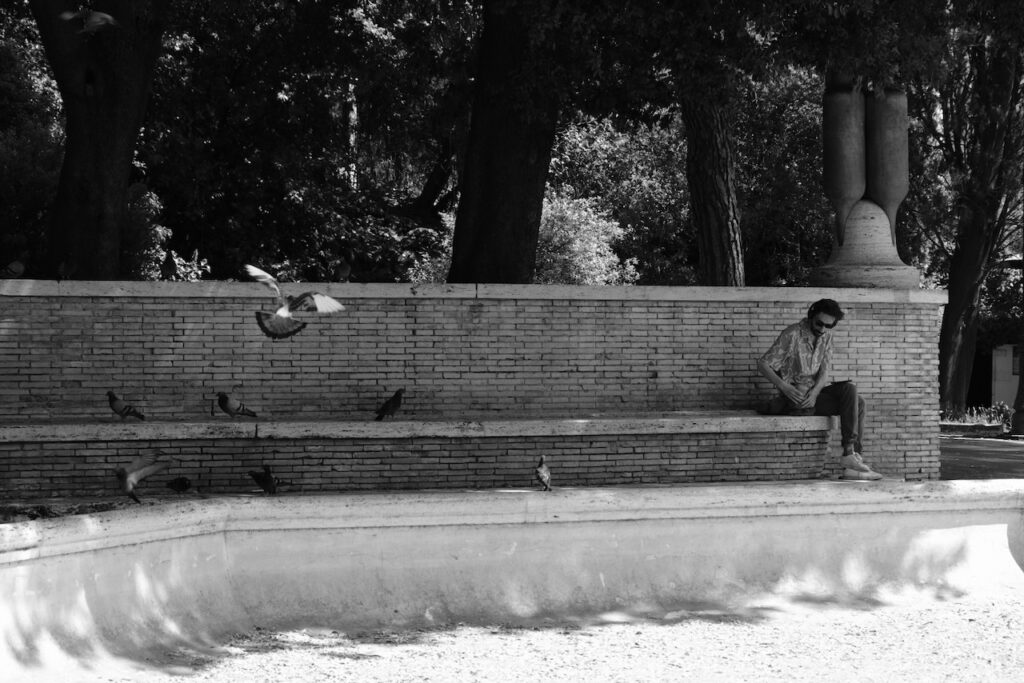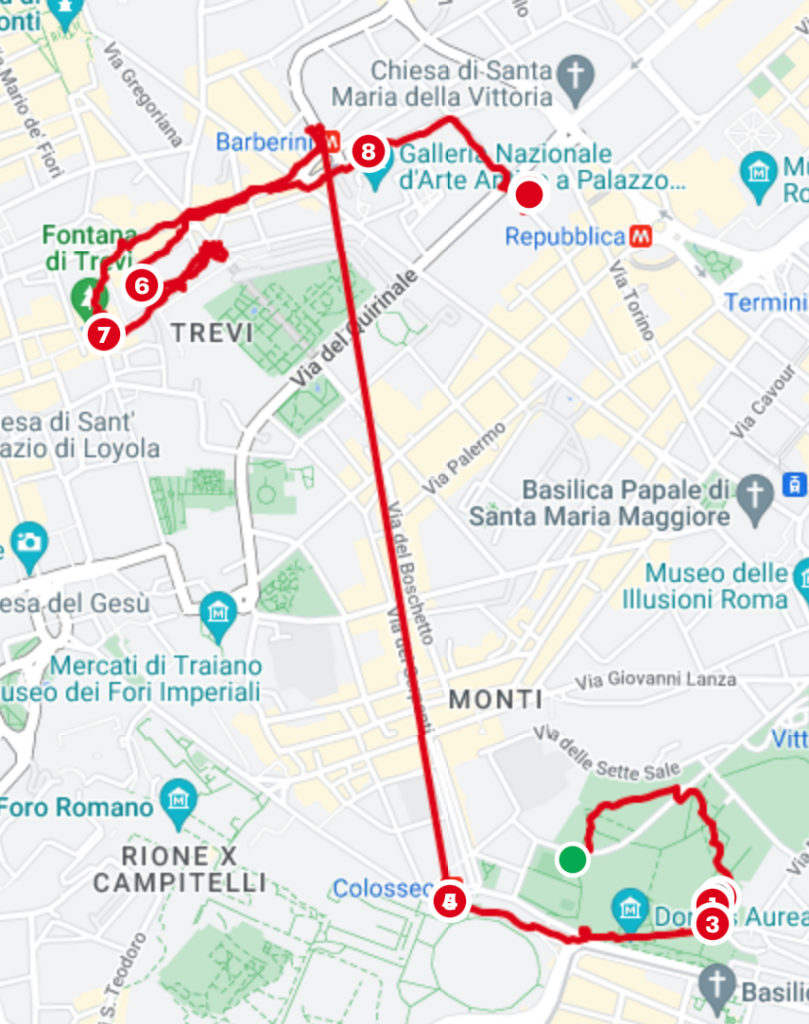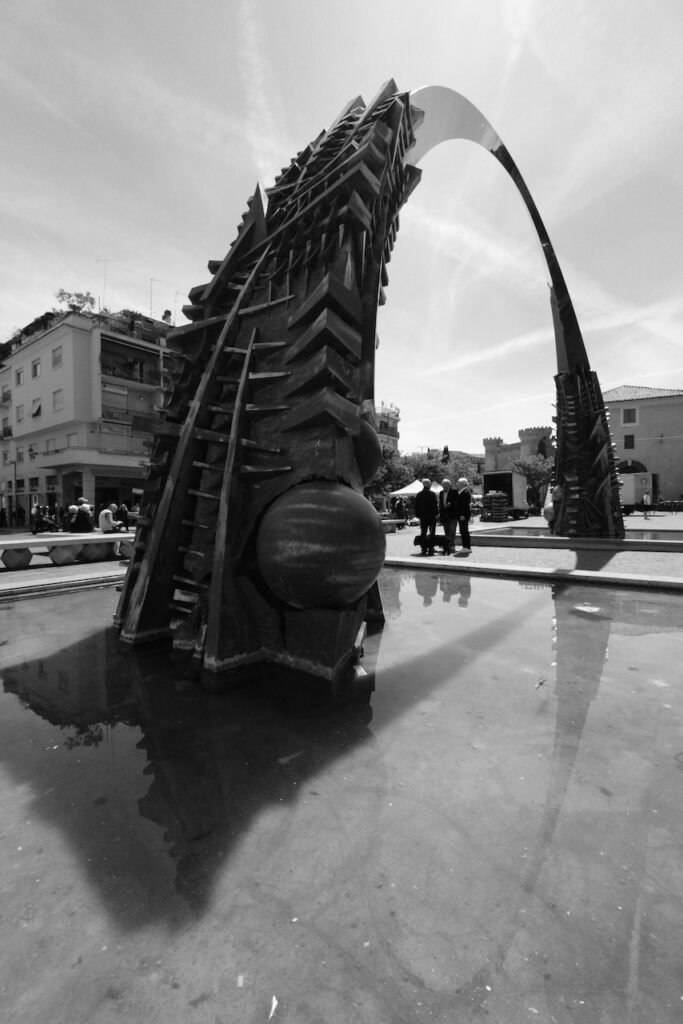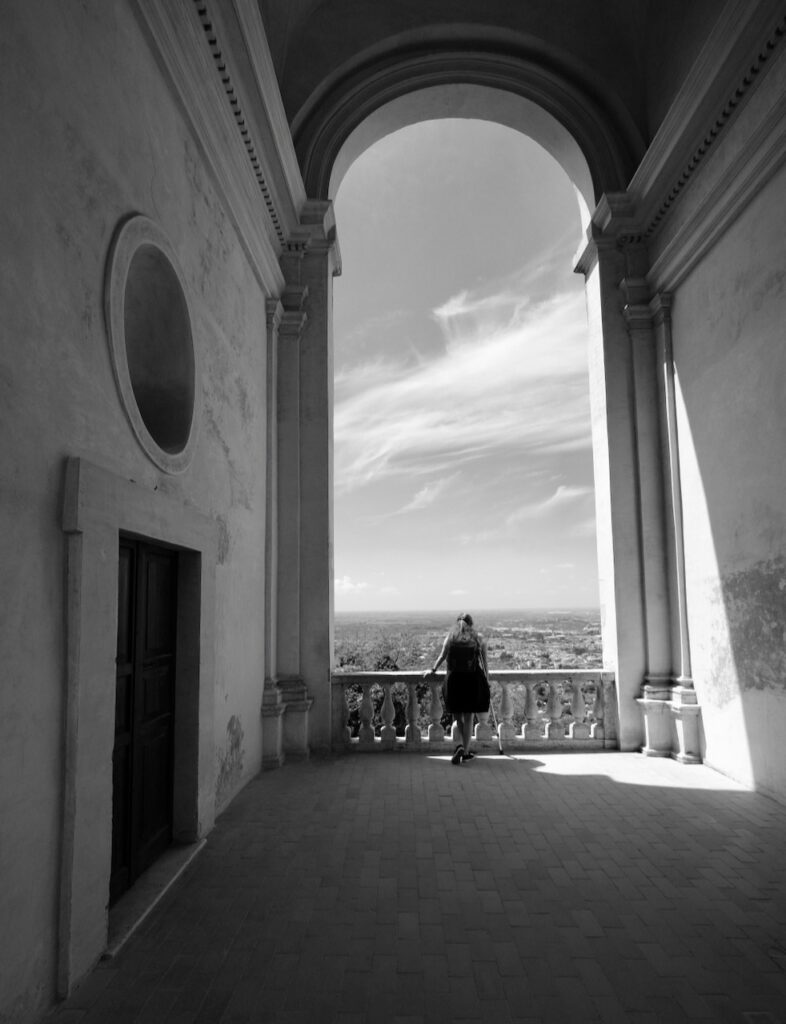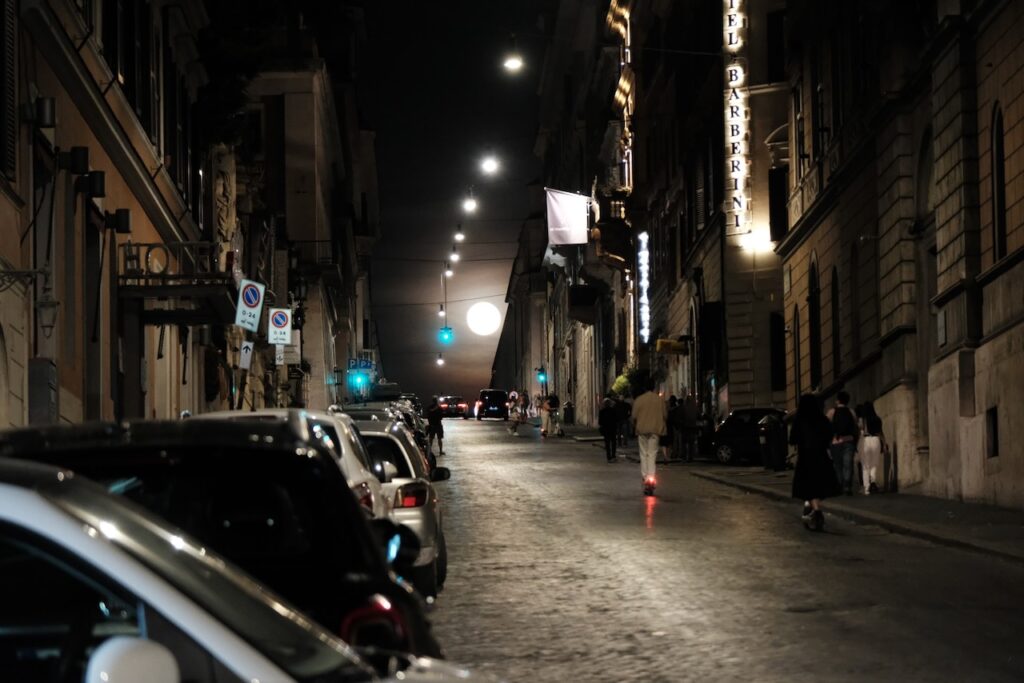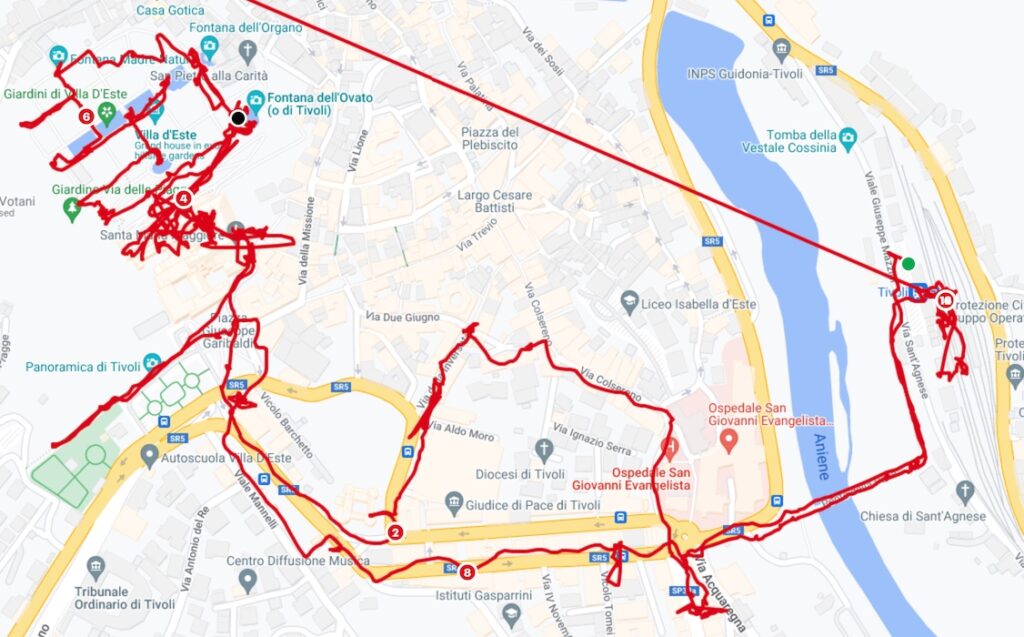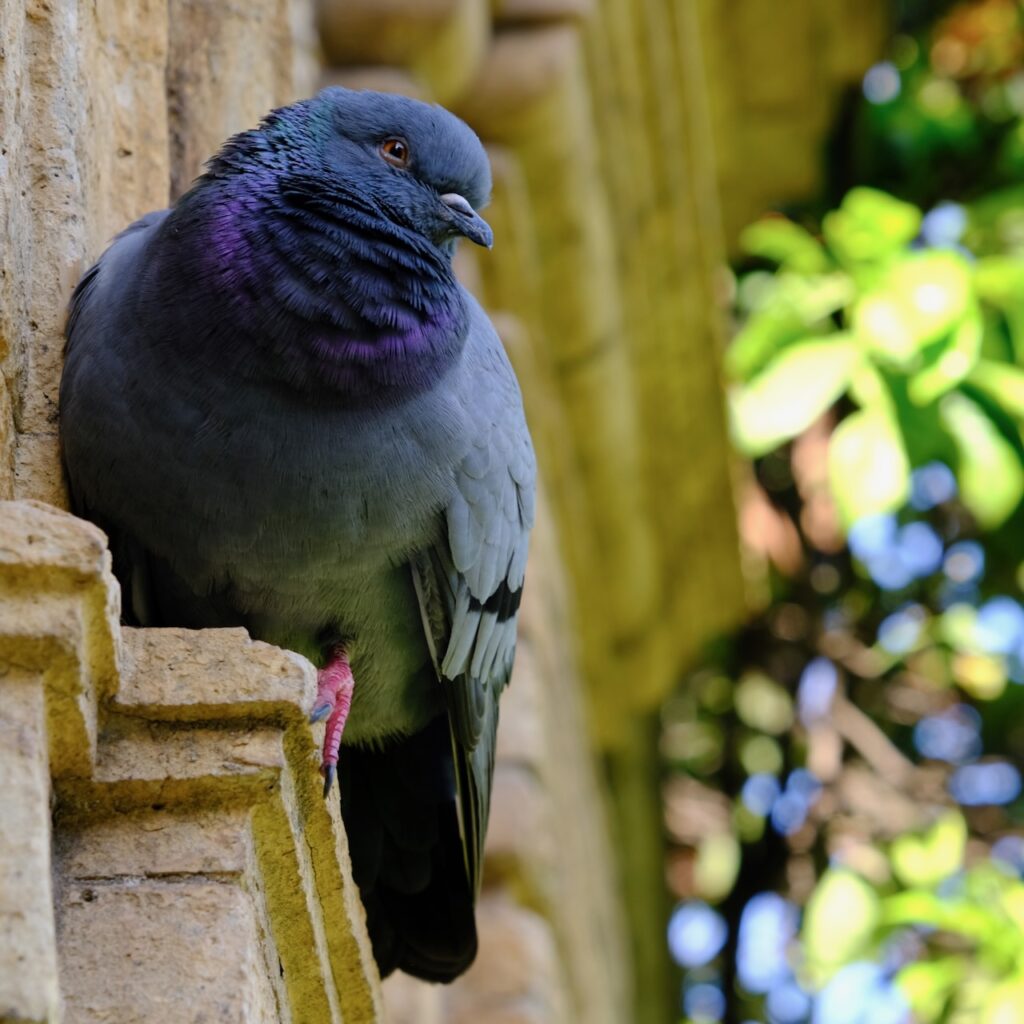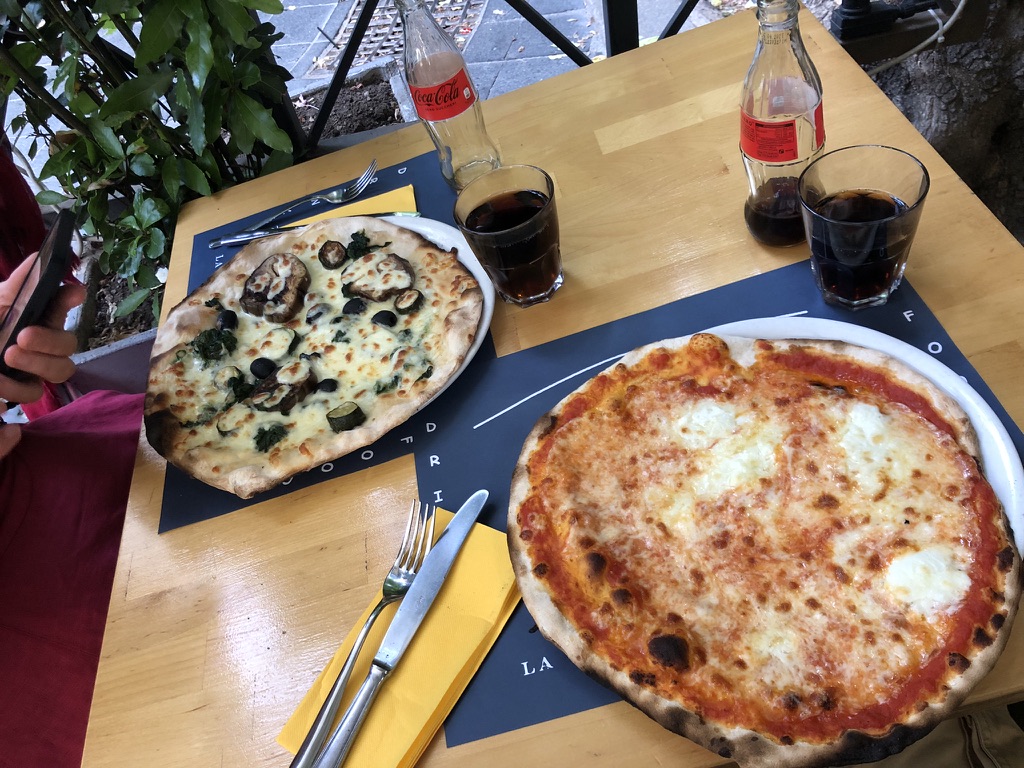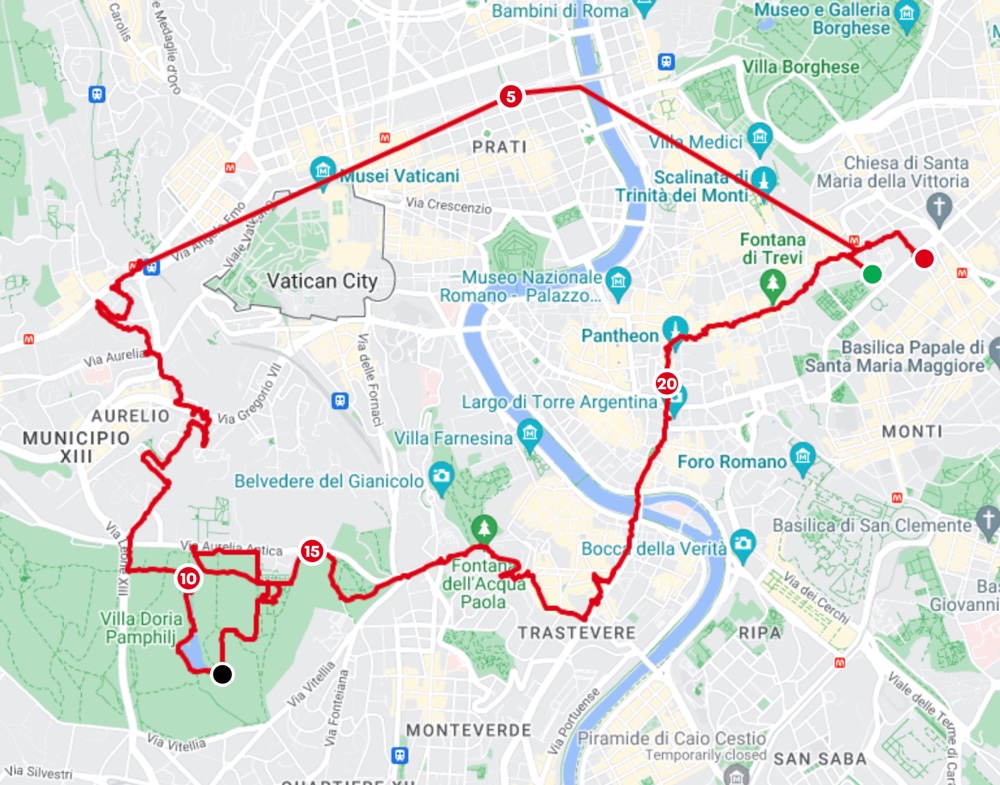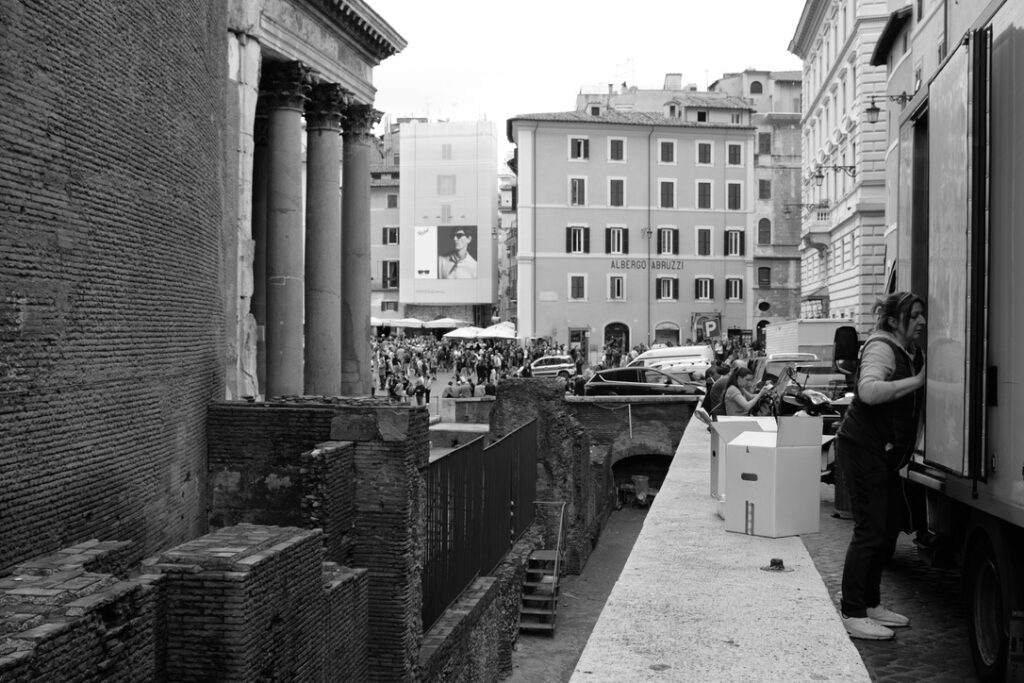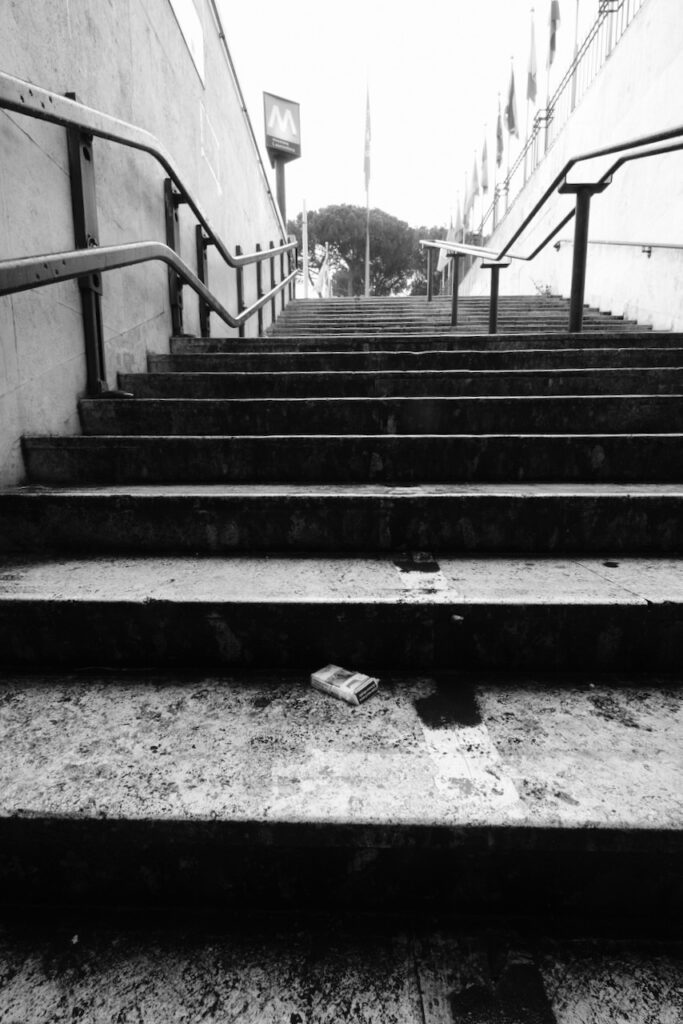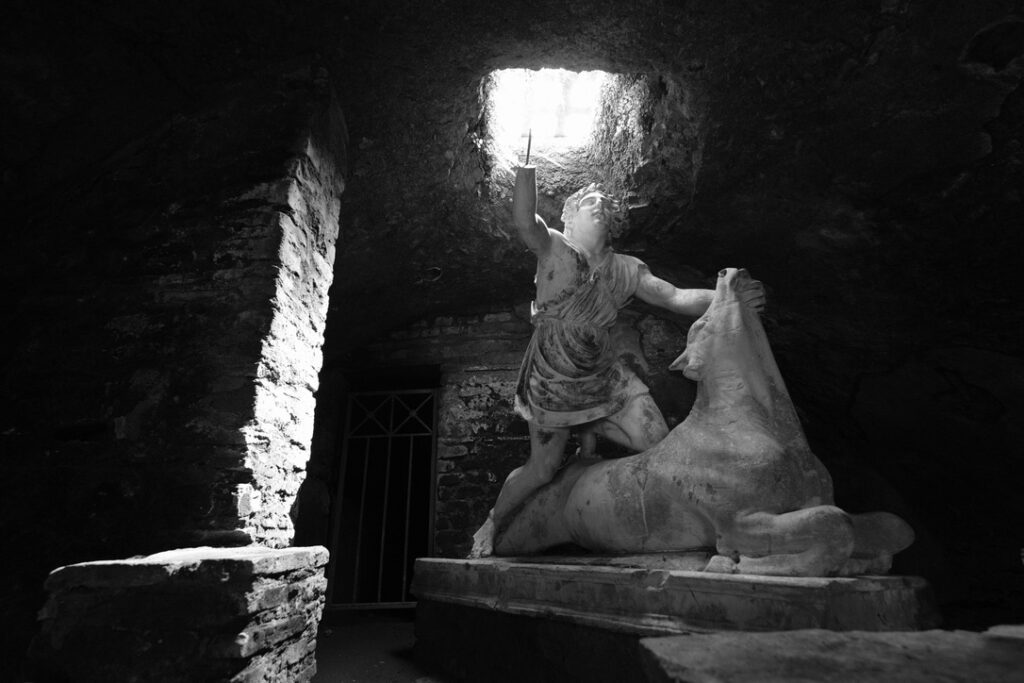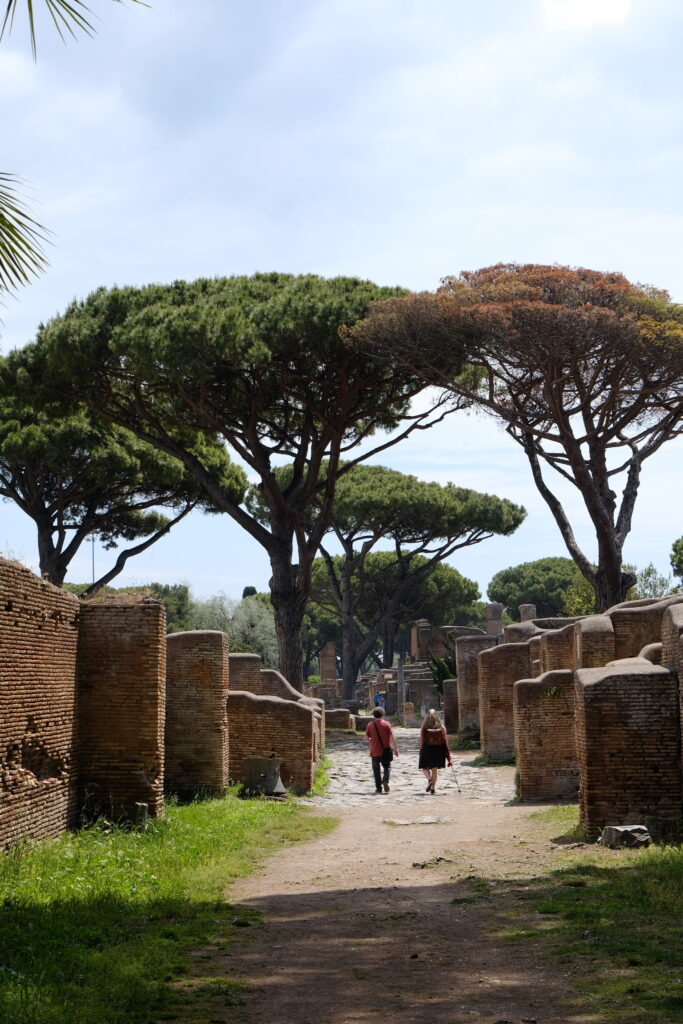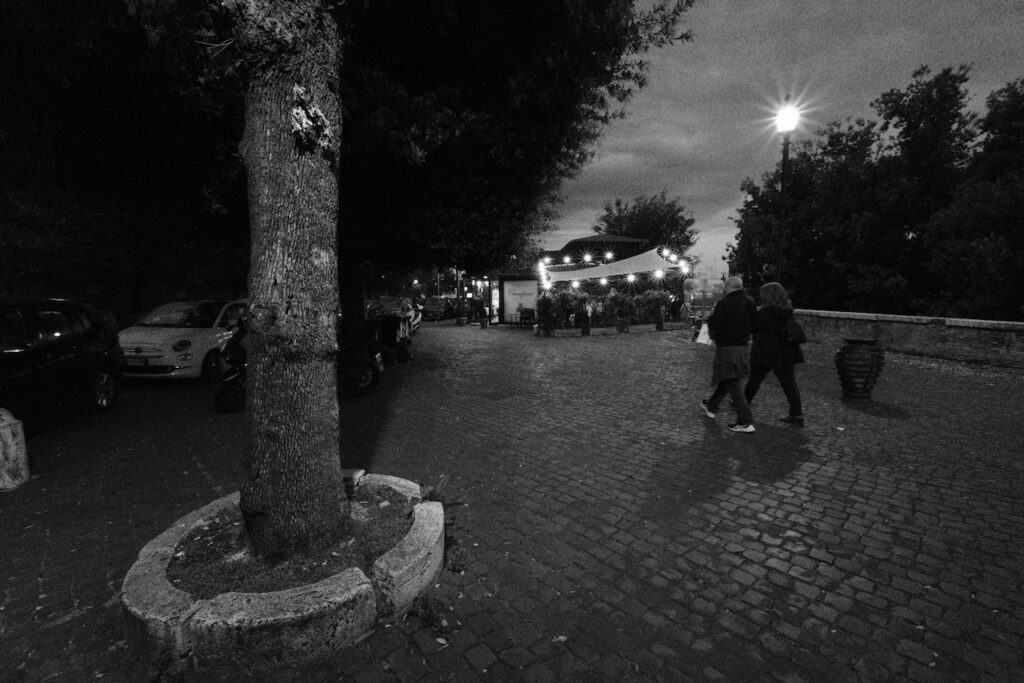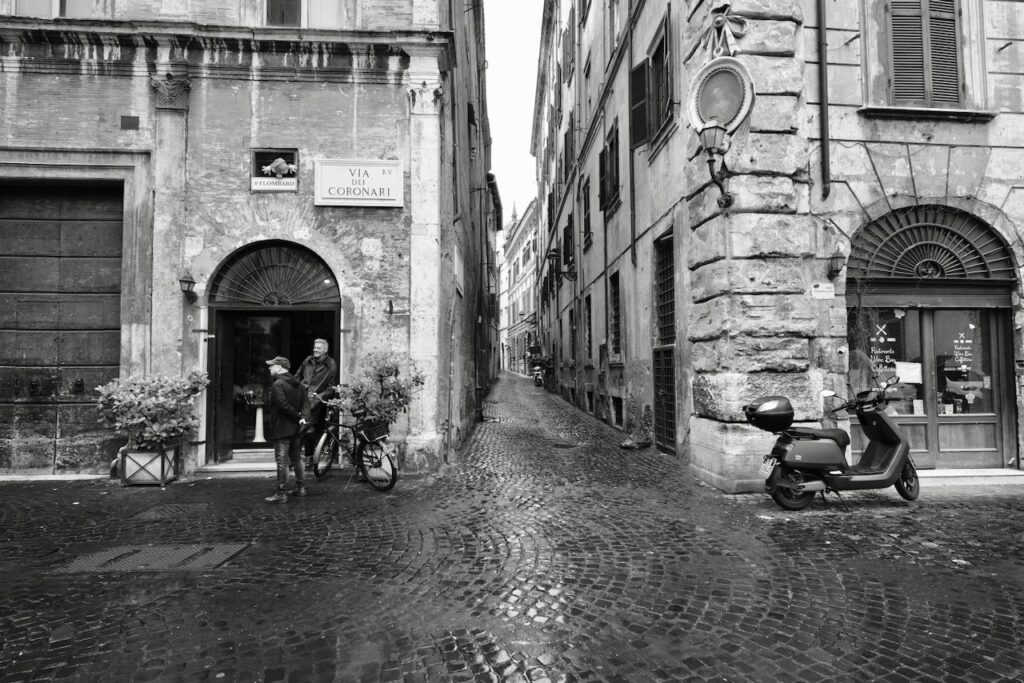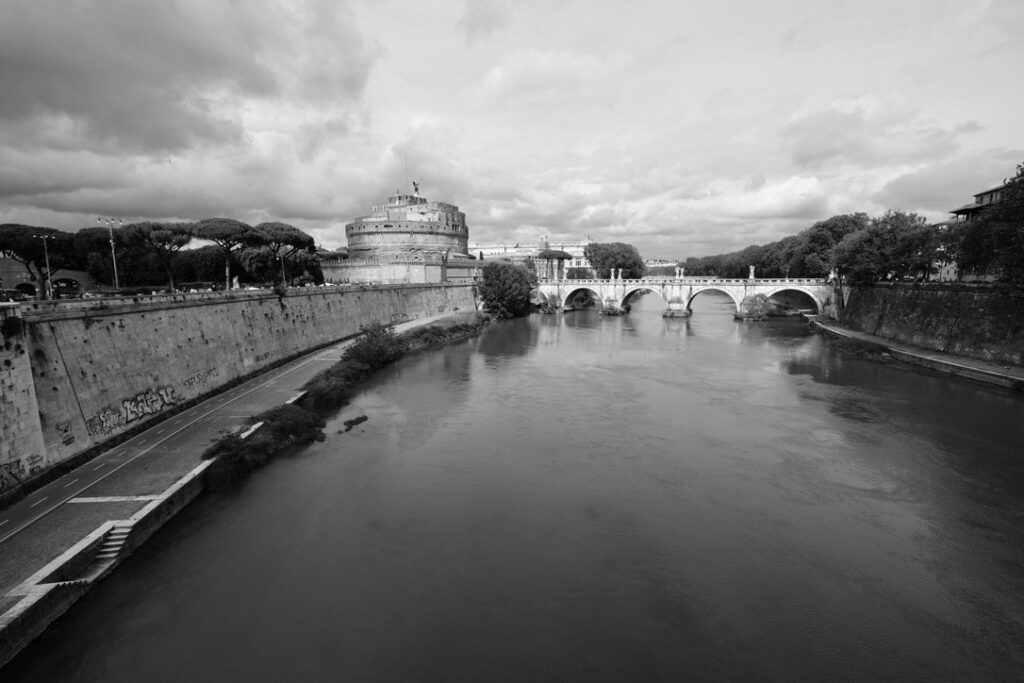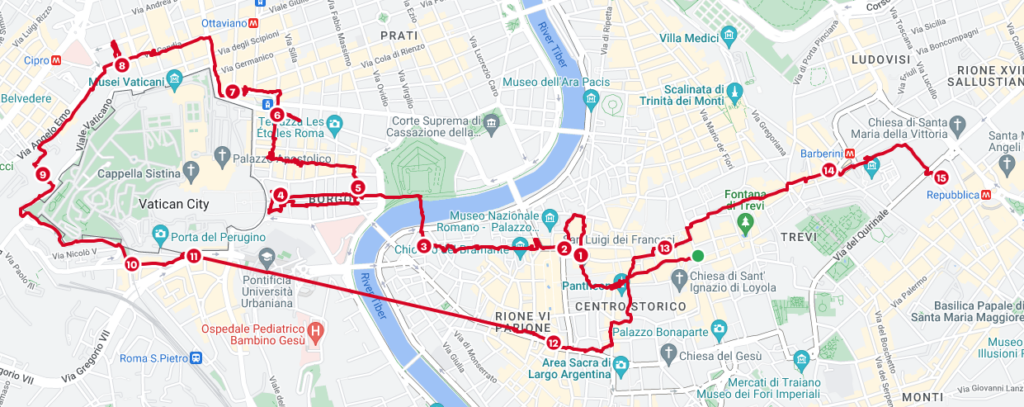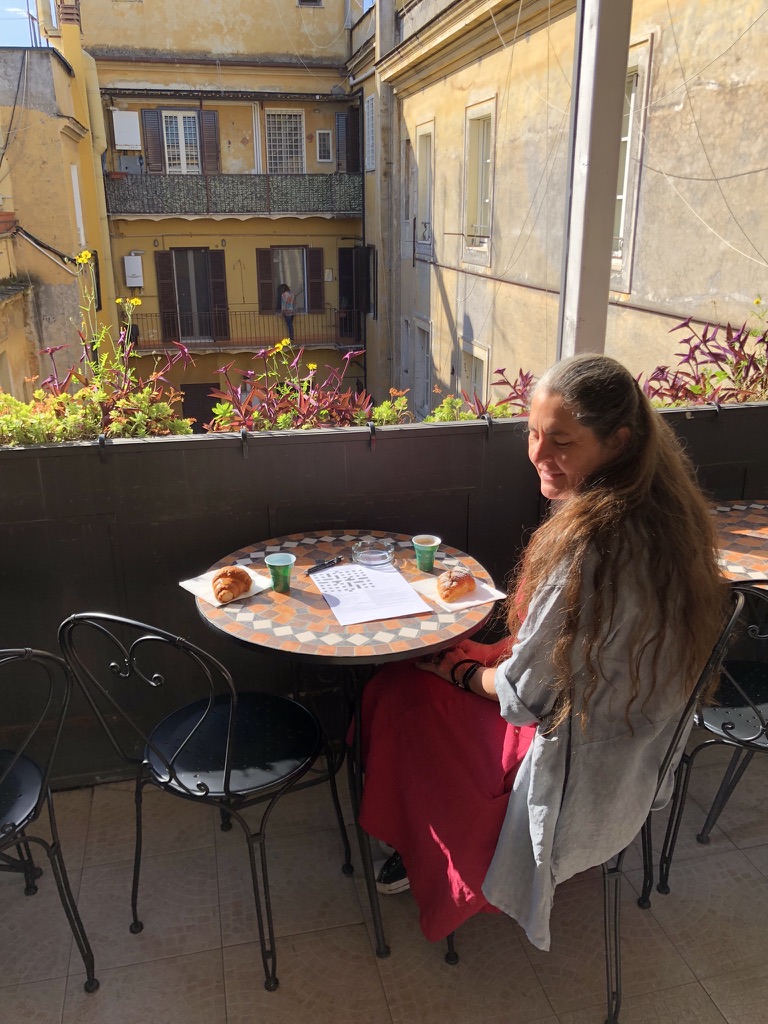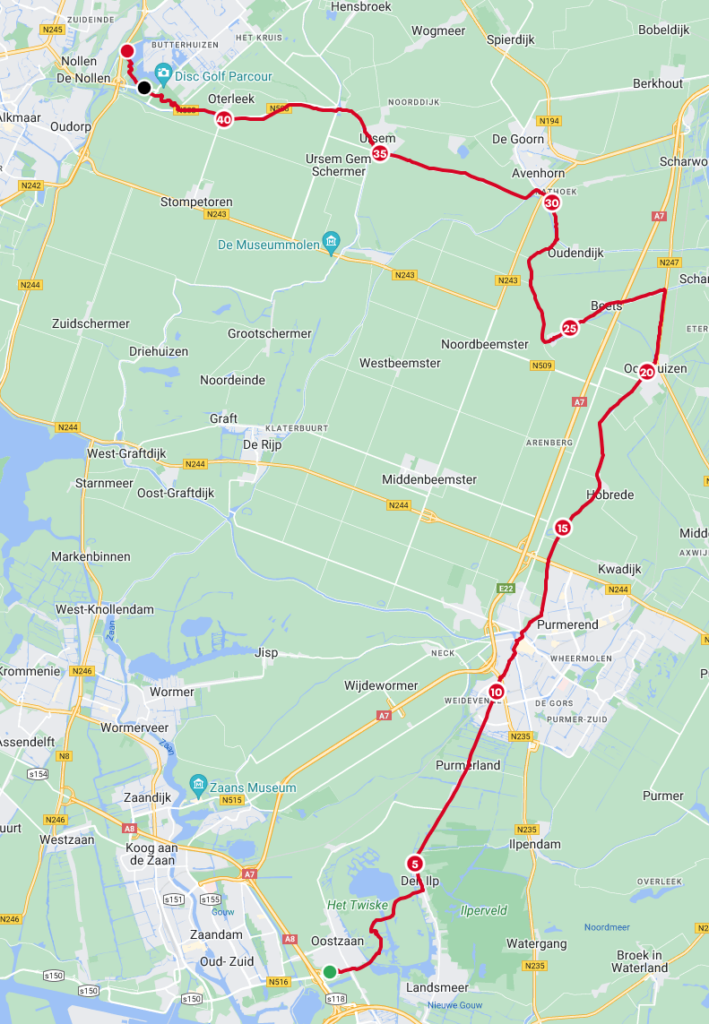
At the end of my marathon walk in April last year I was limping and in pain. A blister on my foot about two-thirds along the route had caused me to shift my gait, and the uneven gait caused stress on my knee. The short-term muscle pain faded after a couple of days, but my knee didn’t fully heal for months. When we were on holiday in Scotland in August I felt it strongly on the descent stretch after walking up Cruban Beag. In September I was in New Jersey for work, and I walked from my hotel near the Holland Tunnel north to the George Washington Bridge, and the knee started hurting about 13km along.
I think it was probably a tendon injury. I remember ending up with tennis elbow in both my arms back in 2013 when I was doing a lot of bouldering and I had pushed myself too far too fast. Just because your muscles can handle a particular kind of exertion doesn’t mean that your tendons have strengthened enough yet. It look me about a year to fully recover from that, and by that time I’d got out of the habit of climbing, and I never really went back. (I do miss climbing sometimes.)
By the start of this year my knee was doing better. I was able to do longer walks without any twinges at all. I was also enjoying putting on a bit of pace, rather than just going for a leisurely daily stroll. I started to figure that I was working myself up to another marathon walk, and this time I wanted to do it differently. Specifically, I wanted to see how fast I could do one.
My previous marathon walks have been about just doing the distance, regardless of time. I’ve taken breaks to rest and relax along the way, stopped to take photographs, and just generally taken it easy. But since January my “brisk” daily walks were clocking in at 6.5km/hour or faster. Could I keep that up over the whole distance? At that speed I’d cover a marathon in about 6.5 hours. That seemed fast to me. I was curious.
So there were a few things I did to prepare for this. First of all, I tried to keep in training – continuing the habit of a fast daily walk of at least 4-5km. Longer at weekends. I wanted to give my muscles and tendons a chance to get used to the idea, and avoid a repeat of last year.
Secondly, I bought some new shoes. I’ve enjoyed Asics Patriot shoes for several years now. They’re comfortable, breathable, and great value. But they’re also “entry-level” shoes. In March I bought myself a pair of Asics Gel-Pulse 13 shoes (€68.95 at Plutosport felt like a bargain), and I broke them in over the course of a few weeks. (Note to self: I got them in size 44, and they felt big when I got them, but after adjusting the laces and wearing them in, they feel fine.) Maybe I’d used up the elasticity in the soles of my old pair of Patriots, but this new pair felt genuinely bouncy. I like them!
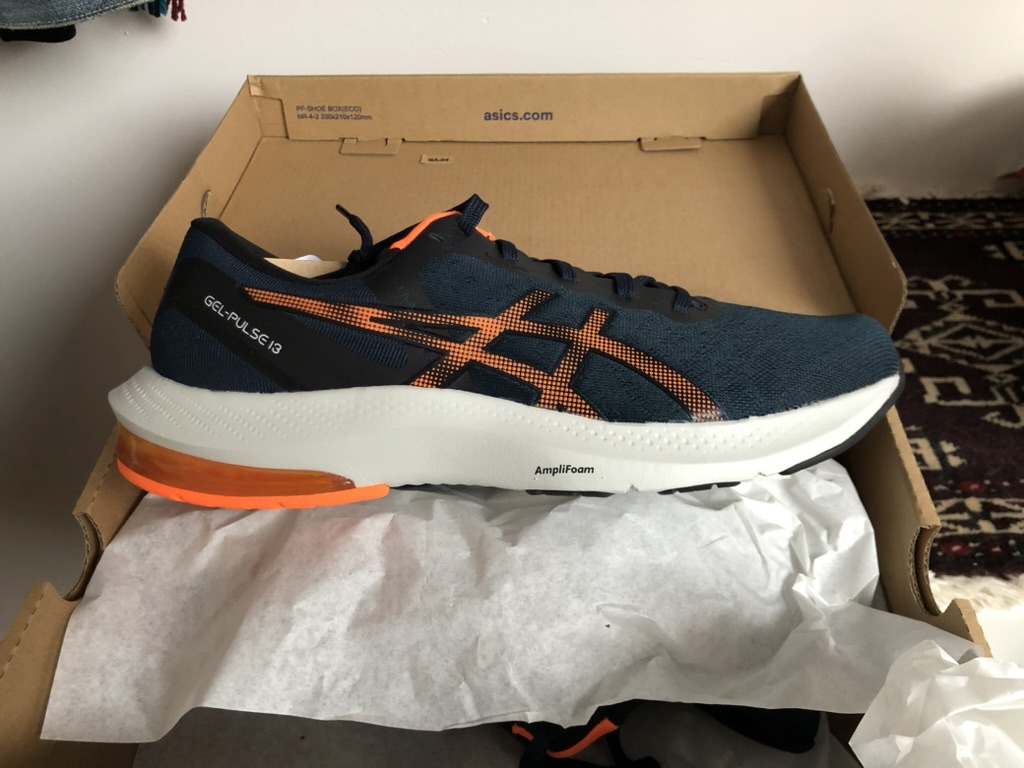
As well as shoes, I’ve also paid more attention to my socks. I’ve been wearing dedicated walking socks rather than generic sport socks for “proper” walks. They’re tight, and they reduce rubbing. They make a difference.
Third, I found that walking with music rather than with podcasts made a difference to my ability to keep up a good pace. Listening to a podcast is fine when I want to listen to a podcast first of all, and want to be doing something purposeful at the same time, rather than just lying in bed. Listening to music of the right tempo keeps me walking on the beat. Sticking to the groove becomes its own purpose. Rather than finding it boring to “just walk” without anything else to keep my brain occupied, I find it helps the kilometers pass by more easily.
Meute is great for this. Most of their music falls in the 123/124 bpm range, which is my “brisk walk” comfort zone. 120-122bpm feels good for warming up, or for slowing down a notch if I’m feeling tired. 125-126bpm is for when I’m up to full pace. Anything beyond that is fun for pushing myself for a while, but — at my current fitness level — isn’t sustainable over long distances.
I found myself using the website taptempo.io to gather tracks manually for a while, until I found Spotify’s own “advanced playlist tools” site http://sortyourmusic.playlistmachinery.com/. If you log in with your Spotify credentials, you can pick a playlist and sort and filter the songs in it by BPM, and then save it as a new playlist. I gathered a ton of my favourite albums and tracks into a mahoosive mega-playlist, and then created new playlists for every BPM from 116 to 135 (LOL). I ended up with at least 20 tracks in each one. Most of them had around 60, but 120bpm had 138 – shows what a popular groove that is. This was enough to give me hours of variety even if I stuck to a single pace.
Finally, I bought myself an Apple Watch. This was a nice-to-have, not a necessity. I’ve had an entry-level Fitbit since 2019, mainly for sleep tracking and peripherally also for keeping an eye on my resting heart rate and daily walking distance. It does this very well. But the Fitbit ecosystem doesn’t integrate nicely with Apple Health, and I’m pretty well bought in to the Apple ecosystem.
The Apple Watch is a replacement for the Fitbit’s sleep, heart, and step tracking. It integrates better with MapMyWalk, which I use for walk tracking. It comes with some more sensors, such as ECG, fall detection, LOUD NOISES, though unfortunately not blood pressure, which I still have to measure and enter manually. It has some nice features, like being able to start, pause, and resume a “walk” workout from the watch, rather than having to pull my phone from my pocket. I can see my bpm/walking cadence and average speed easily with a glance at my wrist. If I want to skip to the next track in my playlist, I can do that from the watch as well. It occasionally unlocks my phone for me when I’m wearing a mask and Face ID doesn’t work, but it’s not 100% reliable at that.
I’m sure I could do all of these things from a more advanced Fitbit as well, and the Fitbit would run for longer on a single battery charge. I had worried about the stated “18 hour” battery life of the Apple Watch, because I want to keep it on at night for sleep tracking, not to take it off and leave it on a charger. But there are a number of features on the Watch that I explicitly do not want, such as notifications and an always-on display, or a voice assistant always listening to me. With all of these things turned off, it’s basically just a shiny black pebble of sensors strapped to my wrist, and I find it easily goes for 36 hours between charges. If I’m doing a “workout”, it polls the sensors to track things like position and heart rate more frequently than when I’m at rest, but even so I’ve never had a problem getting a whole day out of it. I’d thought that charging it so often would be annoying, but it’s fine. I’ve got used to it.
Also, it’s nice. It’s a nice object.
So on Saturday 8th April I got up early and set out on my chosen route, which was basically “north and then turn left”. One other thing I had decided to do on this walk was to travel light. I wore my Kühl hiking trousers, a T-shirt, and a light hoodie. I didn’t bring a backpack or bum bag. Just my phone, watch, headphones (my over-ear Sony WH-1000XM3, because they have better battery life than my Airpods), some painkillers and loperamide (because IBS-D), blister plasters, and some cards and cash. It’s Noord-Holland. Even walking through the polder, there’s population everywhere, and I could buy water or food along the way.
I left the house at 07:00, and headed out through ‘t Twiske just as the sun was rising. It was beautifully scenic, and I could have spent a long time taking pictures, but that’s not what the day was for! I took a couple of snaps, but I didn’t stop to compose them – I took them on the go.
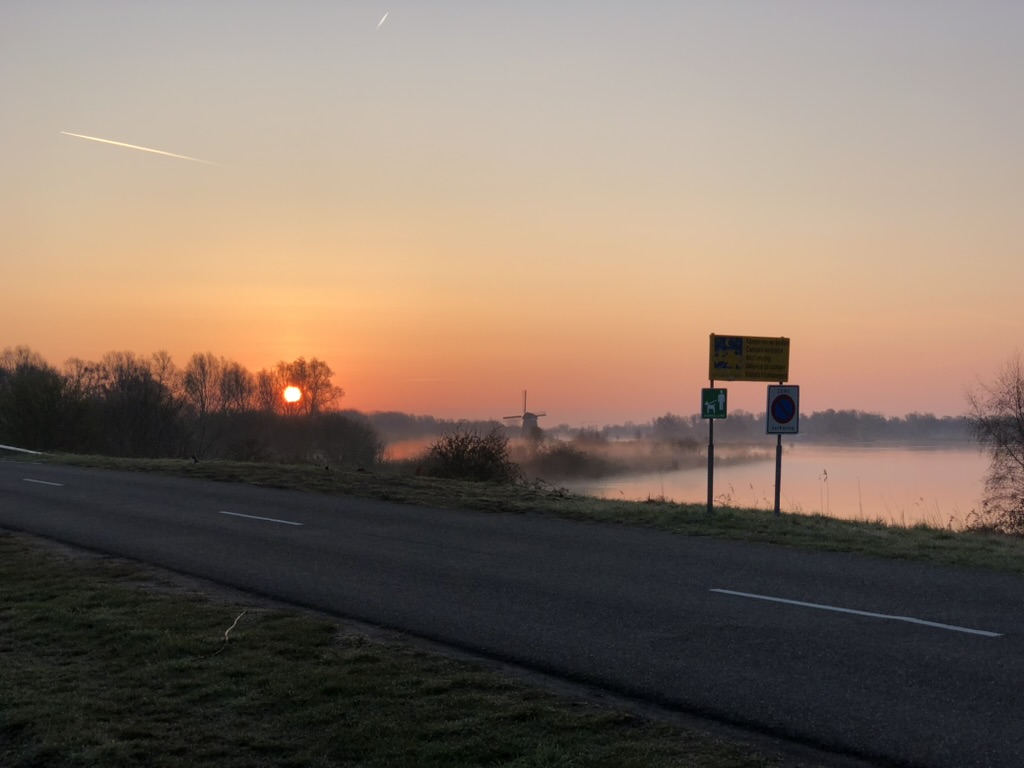
On previous long walks I’d noticed that after a couple of hours on the go my fingers swell up. Apparently this is pretty common. One way that I’ve found to reduce it is to clench and unclench my hands a bit while I’m walking. Unfortunately the morning was also pretty cold, and my hands and arms were chilled, and I think I over-did hand clenches. Ironically, I think I accidentally gave myself a forearm tendon strain. A month and a half later my right forearm still hurts. (At least I’m not climbing.)
I set a good pace, well under 9 minutes per km for the first 10km, and then took a very needed toilet break when I hit Purmerend. (The AVIA petrol station on the other side of the Melkwegbrug was just opening.) (Even preventive loperamide has its limits.) I also grabbed a snack and a drink there.
I continued with a good sub-9-minute pace to the TOTAL petrol station just past Oosthuizen, where I took another toilet break and bought another snack and drink. A little beyond that was my “left turn” in the general direction of Alkmaar. I noted, but did not stop at, the cheese vending machine (“kaasautomaat”) at the Roos family farm just outside Oudendijk. (Abi and I would return there the next day.)
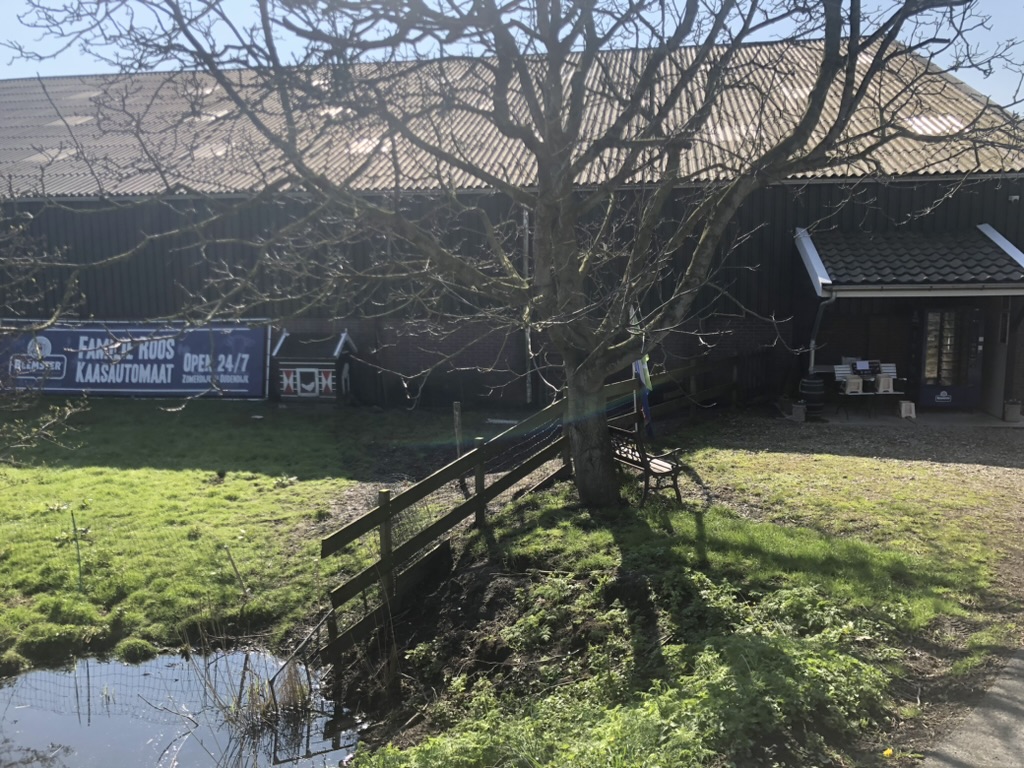
I hit 30km around Kathoek just past Oudendijk, and started to feel the distance. The dyke between Avenhorn and Ursem was pretty, but seemed to go on forever. This is also where I saw some blue-billed ducks on the canal. Blue seemed a weird colour for ducks? I snapped a photo of them with my phone just as a reminder to look them up when I got back home, and resolved to maybe come back with my long lens for a better look later.
At Ursem, about 35km in, I stopped for another snack and drink at Cafetaria Eethuis Jem. I didn’t need to use the toilet, but I really needed the blood sugar, and a little sit down to gather my energy for the last stretch. In hindsight, I should maybe have got some frites with a bit of starch rather than another snickers bar, but I didn’t have much sensible appetite.
The last 7km to Alkmaar were a slog. Although I’d kept my average pace below 9 minutes per km up to that point, it was over 9 for the remaining distance. I hit 42.2km in the Park van Luna on the south side of Heerhugowaard at 13:48, claiming my marathon distance in just under 7 hours overall, with an average pace (including breaks) of 6.2km/hour. Very nice. Could I do it in under 6.5 hours? With a bit more training, and perhaps some more sensible snacking along the way, maybe. But I was very pleased with a sub-7 time.
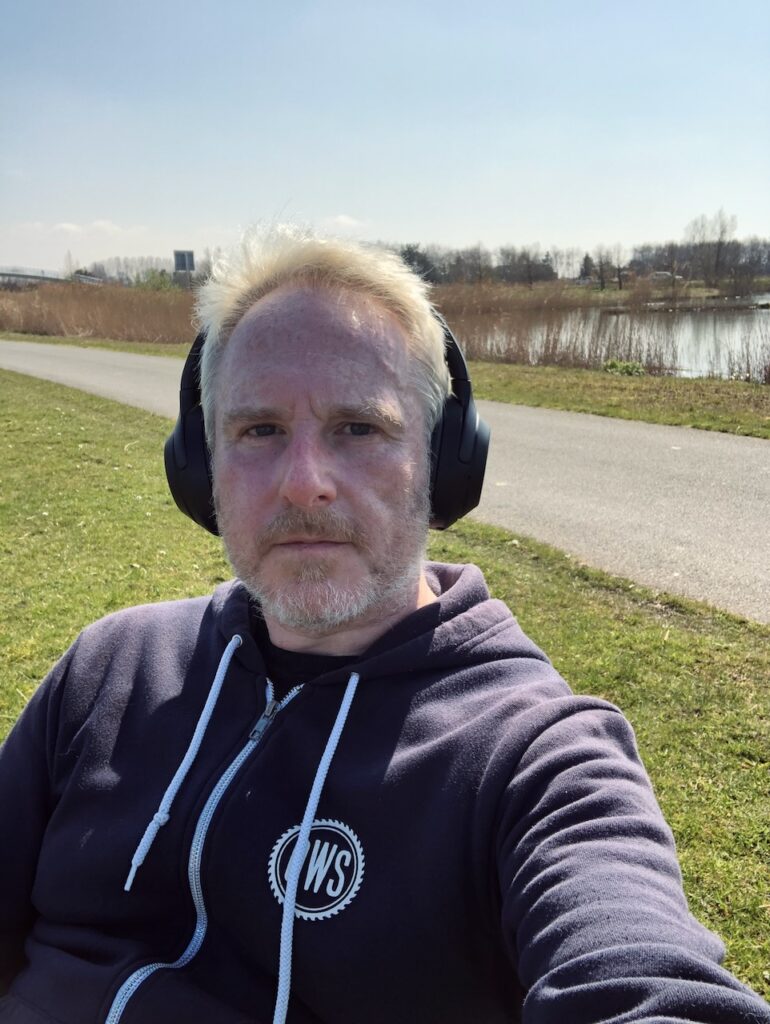
Also: no blisters! The combination of training, good socks, and good shoes seemed to have done the trick. Sure, my feet were sore, but other than a slightly numb toe they weren’t damaged. I wasn’t even feeling completely exhausted. I walked on through the park a bit further to the Strand van Luna where I waited for Abi to come and pick me up. Then we even stopped at the Kingloopwinkel RataPlan in Alkmaar where Abi had seen a nice bedside table earlier in the day, and we hauled it back to the car.
Abi drove us back, and we picked up McDonalds on the way home.
Epilogue: blue-billed ducks.
I was curious what they were, and I wanted to go back to see if I could see them again. Were they just passing through on their migration? Were their bills only blue during mating season? Was this the only week I’d be able to see them?
Also, the walk had taken me past the bridge at Oudendijk, where Abi and I had stopped briefly several years ago. There was a café just on the water that had been closed at the time, but we said that it looked like a nice place to come back to. So the next day we did go back there.
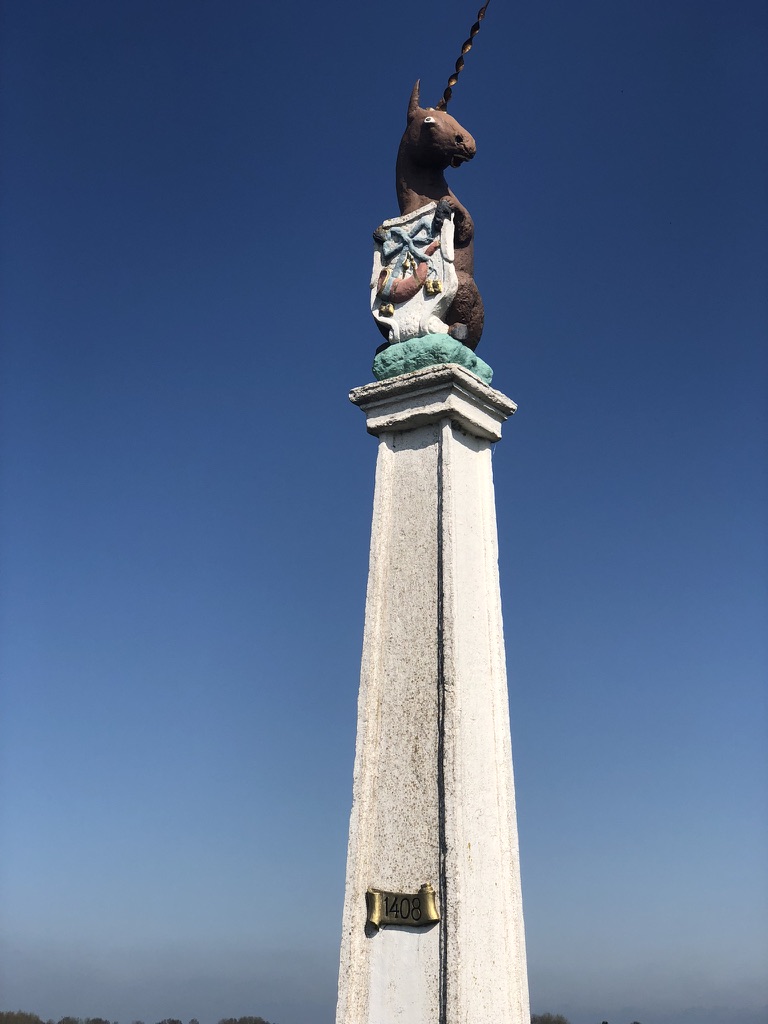
We drove along the dyke between Avenhorn and Ursem. We saw the derpy Unicorn on the banpaal. We saw some geese, coots, and cormorants, but no blue-billed ducks. It was, however, later in the day, and ducks are often most active in the mornings and evenings. I figured I’d have to come back at a different time of day.
We drove back to Oudendijk, stopped at the bridge, and had a lovely lunch at the Café Les Deux Ponts there. The morning had been cool and cloudy, but as soon as we got there the clouds burned off and it was warm enough to sit outside on the terrace overlooking the water. We saw some mallards, but again no blue-billed ducks.
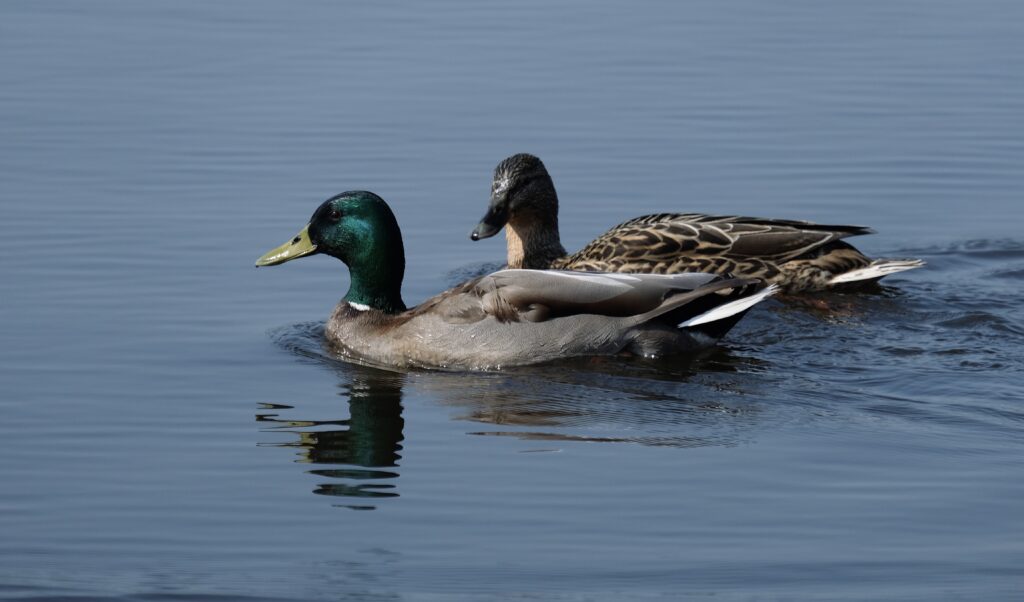
I finally caught them when I returned to the dyke on the following Wednesday evening. I’d had a shitty day at work and wanted to get out of the house and out of my head. I drove back north, parked at Avenhorn, and walked along the dyke just as the sun was setting. I found one pair just past the bridge near the banpaal. They were sleepy at the end of the day, but not so sleepy that they were unaware of me. As I got closer to the water, they casually swam to the other side of the canal. And when I crossed the bridge to try to get closer again they just casually drifted to the other side again. I got the message.
I found a second pair just short of the bridge as I was walking back. These two were a little more active. It was cold and the light was starting to go, but I managed to get a nice photo of them.
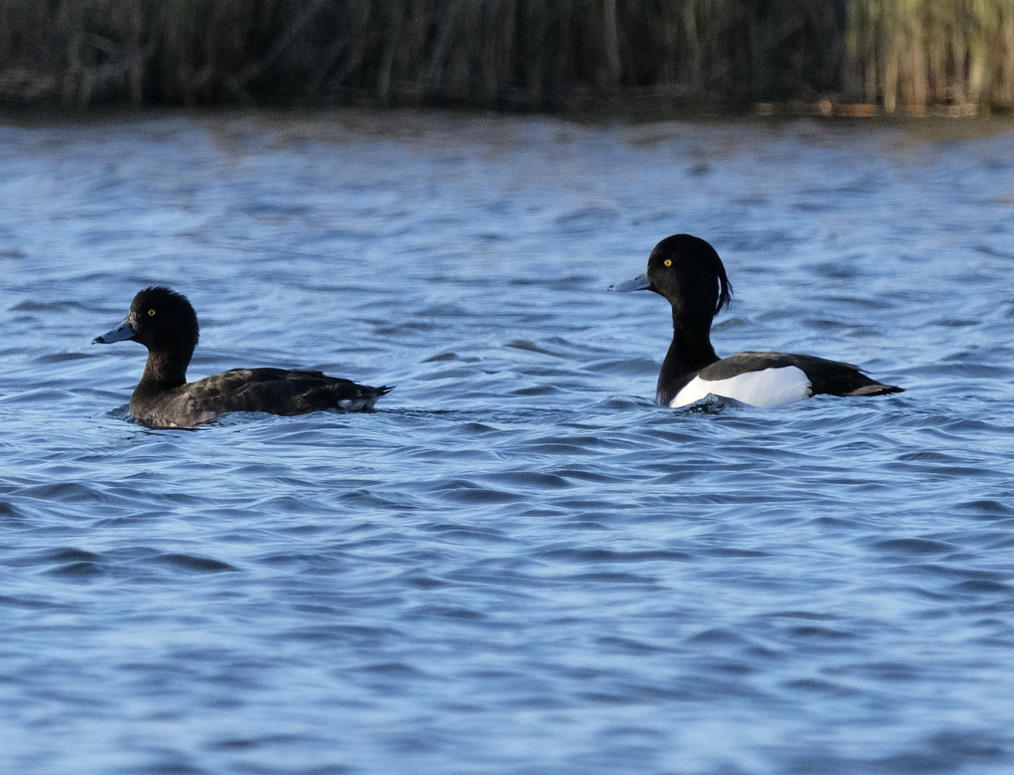
Turns out they’re tufted ducks. They’re not rare at all. I’ve probably seen them before, but I’d just never paid attention. Now I know.
